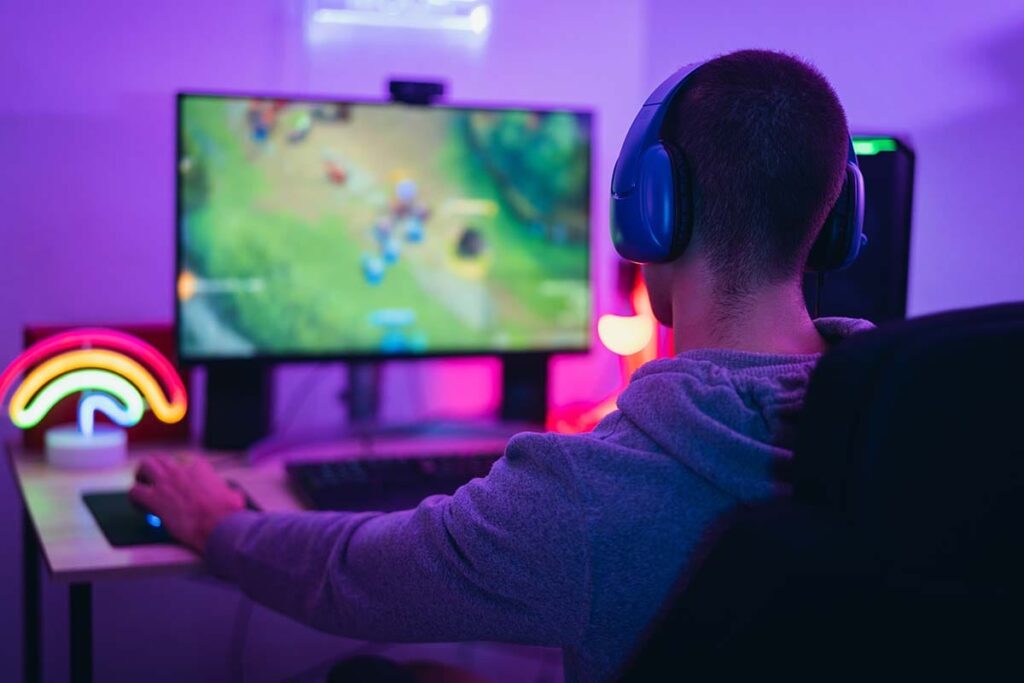In today’s world, video games are everywhere. They’re on computers, gaming consoles, cell phones, and across the internet. In fact, the video game industry today is larger than the movie and music industries combined. These games can become highly problematic for teens, but starting video game addiction treatment may be able to help.
If your teenage boy is struggling with a video game addiction, reach out to the team at Foothills at Red Oak Recovery at 866.300.5275 to learn more about treatment options and how they can help.
Can Gaming Become an Addiction?
When most people think of addiction, they think of drug and alcohol use. But certain behaviors can be addictive as well. Behavioral addictions, or process addictions, have several parallels with drug and alcohol use disorders, including:
- Intense cravings for the behavior
- Withdrawal symptoms if the behavior suddenly stops
- Loss of interest in activities outside of the addictive behavior
- Worsening mental health symptoms as a result of the behavior
- Social, academic, and personal consequences as a result of the behavior
- An inability to cut down or stop the behavior on their own
Teenage gaming addiction is a common form of behavioral addiction and can cause a host of problems in a teenager’s mental and physical health if left untreated.
Teenage Gaming Addiction
Video games today are designed to be addicting. Publishers earn money when people buy their video games, make in-game purchases, and return to their games repeatedly. As such, they use subversive tactics to enthrall teenagers in their game worlds.
In all likelihood, you’ve experienced this for yourself. Even mobile games like Candy Crush are designed to trigger addiction, with colorful graphics and sounds that closely parallel those seen and heard at a slot machine.
While not everybody who plays a video game becomes addicted, those who do face serious consequences. Many games encourage players to buy in-game items with real money or lead teenagers to neglect their social or academic lives in favor of playing the game.
This robs teenagers of valuable time when they could be learning skills, knowledge, and aptitude to sustain them for the rest of their lives. Video game addiction stops teenagers from being able to enjoy the real world, and it can set them up for future stress and addiction.
Gaming Addiction Rehab
A video game rehab uses a variety of evidence-based strategies to help teenagers overcome their video game addiction and live better, healthier lives in recovery. The tools used to treat video game addiction are extremely similar to those used to treat substance use disorders. Treatments include:
- Individual therapy
- Group therapy
- Experiential therapy
- Life skills training
- Academic support
- Family therapy
Together, these tools teach teenagers who struggle with video game addiction how to find meaningful purpose in the world and begin to flourish. It also teaches them how to deal with video game cravings, how to moderate their consumption of addictive material, and how they can achieve more and do better when they abstain from video game use.
Start Video Game Rehab with Foothills at Red Oak Recovery
If you’re looking for a gaming addiction rehab that can genuinely help your teen, reach out to the team at Foothills at Red Oak Recovery by calling 866.300.5275. Our program has been designed from the ground up to help teenage boys overcome all manner of mental health challenges, from video game addiction to depression, substance use disorders, and much more.
We understand how difficult it can be when your child is struggling with addiction, but there is hope. Contact our team today to learn more about our comprehensive suite of treatment options and how to get your adolescent boy the help he needs to recover.

